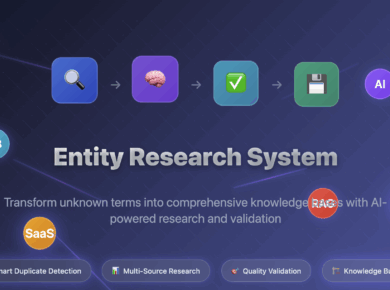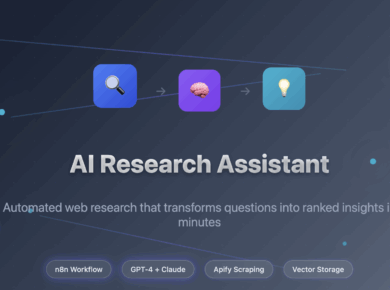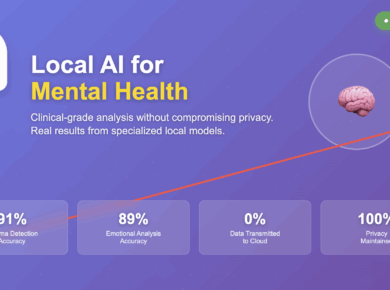Table of Contents Show
As CPA firms increasingly rely on digital platforms like SharePoint to manage and protect their sensitive data, the imperative to optimize both security and operational efficiency has never been more critical. Implementing stringent access controls and sophisticated permission settings is just the starting point. The challenge, and indeed the opportunity, lies in balancing robust security protocols with streamlined workflow automation to not only comply with stringent regulatory requirements but also improve team productivity and client service. How CPA firms can achieve this delicate balance raises several intriguing considerations, particularly in how advanced features of SharePoint can be utilized to fortify data security while simplifying complex processes.
Key Takeaways
- Implement granular access controls and permissions to secure sensitive CPA data.
- Utilize metadata tagging and advanced search filters to enhance document retrieval efficiency.
- Automate compliance policies and document retention schedules to maintain regulatory standards.
- Conduct regular security training and audits to strengthen data protection.
- Streamline workflows through SharePoint automation, improving productivity and reducing manual tasks.
SharePoint Benefits for CPAs
SharePoint offers numerous advantages for Certified Public Accountants (CPAs), primarily improving the efficiency and security of document management.
For CPAs seeking to foster a sense of unity and collaboration among teams and clients, SharePoint’s capabilities in client collaboration and document versioning are particularly beneficial. It allows multiple users to work on documents simultaneously, guaranteeing that all modifications are tracked and managed effectively.
This version control not only prevents data loss but also supports a transparent audit trail of document revisions, which is essential in the accounting field.
Security Features Overview
A multitude of robust security features positions SharePoint as an ideal platform for CPA firms prioritizing data protection and client confidentiality.
Understanding these features allows firms to improve their security protocols effectively:
- Advanced Access Control: SharePoint enables highly customizable access control, guaranteeing that only authorized personnel can view or modify sensitive information.
- Granular Permission Settings: Firms can configure permission settings at detailed levels, controlling user activity within specific documents or folders.
- Secure Authentication Mechanisms: Incorporating strong authentication methods minimizes unauthorized access risks.
- Audit Trails: Tracking who accessed or altered information reinforces accountability and aids in compliance monitoring.
These security measures are crucial for maintaining the integrity and confidentiality of client data in a CPA firm.
File and Metadata Structuring
To ideally structure files and metadata within SharePoint, CPA firms should commence by establishing a clear and consistent folder hierarchy tailored to each client. This organization allows for streamlined access and management of vital documents.
Each main folder should be distinctly named, perhaps by client and year, with subfolders organized under relevant categories such as tax returns, audits, or consultations.
Moreover, metadata tagging is fundamental in this structure. By applying metadata fields like Client Name, Year, Document Type, and Status, documents can be tagged upon upload, enhancing searchability and retrieval efficiency.
Effective folder hierarchy and metadata tagging are important, not just for order but for optimizing workflow and making sure every team member can belong and contribute effectively.
Compliance Tools and Techniques
Guaranteeing compliance within CPA firms involves leveraging SharePoint’s advanced tools and techniques that facilitate adherence to regulatory requirements.
Here’s how SharePoint can improve compliance management:
- Automated Compliance Policies: Implement compliance automation for consistent application of regulations across all documents and processes, reducing human error.
- Detailed Auditing Capabilities: Utilize SharePoint’s auditing techniques to track access, modifications, and deletions of sensitive information, maintaining transparency and accountability.
- Retention Schedules: Define and enforce document retention policies automatically, aligning with legal and regulatory standards.
- Permission Management: Strictly control access to sensitive data by configuring secure permissions and roles, fostering a sense of security amongst team members.
These tools not only promote regulatory compliance but also strengthen the trust and integrity within the firm.
Data Backup and Recovery
Guaranteeing robust data backup and recovery processes is critical for CPA firms utilizing SharePoint. To avoid irrevocable data loss, it’s imperative that firms implement strategic and efficient recovery strategies.
These measures not only secure client data but also foster a sense of trust and reliability within the firm, reinforcing a community committed to safeguarding client interests.
Regularly scheduled backups and clearly defined recovery protocols guarantee that, in the event of a system failure or data breach, crucial information can be promptly and effectively restored.
Employee Onboarding Process
Effective employee onboarding is crucial in guaranteeing that new hires at CPA firms are well-equipped to use SharePoint efficiently.
Here are key steps to improve the process:
- Orientation Sessions: Initiate thorough training that familiarizes new employees with SharePoint’s interface and features, focusing on secure document handling and compliance protocols.
- Interactive Workshops: Encourage active participation and employee engagement through hands-on practice sessions, which help in assimilating the knowledge effectively.
- Feedback Mechanisms: Implement a system for collecting training feedback to continuously improve the onboarding experience and address concerns promptly.
- Integration Activities: Foster a sense of belonging and teamwork by integrating practical exercises that involve collaborative document management tasks, reinforcing lessons while building strong team dynamics.
Ongoing SharePoint Training
Continuing education is vital for maintaining proficiency in SharePoint as it evolves. As SharePoint updates and security measures become more sophisticated, continuous education and training effectiveness are fundamental for your CPA firm’s staff. This guarantees everyone is up to date, enhancing overall productivity and security compliance.
| Focus Area | Description |
|---|---|
| Training Modules | Regular updates on new features and security practices |
| Feedback Loop | Incorporate user feedback to improve training sessions |
| Evaluation | Assess training effectiveness to refine future programs |
Engaging in ongoing training fosters a sense of belonging and commitment among staff, as they feel valued and well-equipped to handle the platform’s complexities. This commitment is vital for maintaining an efficient and secure operational environment.
Document Management Best Practices
Building on the foundation of ongoing training, the implementation of document management best practices is key to optimizing SharePoint for CPA firms.
Effective management of documents within SharePoint guarantees secure and efficient operations, fostering a sense of belonging among team members as they navigate structured and secure data environments.
Here are some crucial practices:
- Implement Document Versioning to track and manage multiple versions of documents, guaranteeing accuracy and historical data integrity.
- Set User Permissions judiciously to control access to sensitive information, enhancing security and compliance.
- Organize Documents Methodically in clearly labeled folders and subfolders to facilitate easy retrieval and maintain order.
- Regularly Review and Update Security Policies to adapt to evolving challenges and maintain a secure document management framework.
Enhancing Search Capabilities
To optimize SharePoint’s functionality for CPA firms, improving search capabilities is essential. Implementing advanced search filters and extensive metadata tagging can transform the speed and accuracy with which documents are retrieved, fostering a sense of unity and efficiency among team members.
By carefully tagging each document with relevant metadata upon upload, such as client name, year, and document type, CPA firms can drastically reduce the time spent maneuvering through vast amounts of data.
Additionally, customizing search filters to meet the unique needs of the firm enables staff to pinpoint exact documents swiftly. This not only boosts productivity but also improves the sense of belonging, as everyone can contribute effectively to the firm’s operations.
Auditing and Monitoring Systems
Effective auditing and monitoring systems are critical components for CPA firms utilizing SharePoint. These systems guarantee that all activities within the platform are transparent and accountable, greatly enhancing security and compliance.
- Implement Audit Trails: Establish thorough audit trails to log all user activities, guaranteeing any unauthorized access or modifications are immediately identified.
- Regular Monitoring Access: Continuously monitor who accesses what data and when, to prevent unauthorized information disclosure.
- Review and Update: Periodically review audit logs and access patterns to adapt security policies and procedures as needed.
- Automate Alerts: Set up automated alerts for any suspicious activities, guaranteeing immediate action can be taken to mitigate potential threats.
Frequently Asked Questions
How Does Sharepoint Integrate With Other Accounting Software?
SharePoint integrates seamlessly with various accounting software, guaranteeing efficient data migration and software compatibility.
This integration supports robust data management, allowing CPA firms to streamline operations and maintain data continuity.
Can Sharepoint Handle Complex Tax Workflows?
Yes, SharePoint can effectively manage complex tax workflows for CPA firms.
It supports robust tax document management and workflow automation, streamlining the handling, storage, and retrieval of critical tax documents.
By automating repetitive tasks, SharePoint reduces errors and saves time, allowing CPAs to focus on more strategic activities.
Its integrated features guarantee that tax processes are both efficient and compliant with regulatory standards, making it an indispensable tool for tax professionals.
What Are Sharepoint’s Limitations for Large CPA Firms?
Like a tree straining under the weight of its branches, SharePoint faces scalability challenges that may hinder large CPA firms.
The platform can struggle with extensive data storage limitations, potentially impacting the firm’s efficiency and compliance capabilities.
It is essential for firms seeking to belong at the industry’s forefront to proactively address these issues, guaranteeing that their document management system can support their growing needs without compromising security or operational effectiveness.
How Does Sharepoint Support Mobile Access for Cpas?
SharePoint supports mobile access for CPAs by facilitating mobile productivity and seamless document sharing.
This allows CPAs to access, edit, and share essential financial documents securely from any location.
The platform’s mobile-friendly interface guarantees that CPAs can remain productive and responsive to client needs, even when away from the office.
This accessibility is vital for maintaining continuous client service and operational efficiency in today’s fast-paced business environment.
What Are the Costs Associated With Upgrading Sharepoint for Security?
Upgrading SharePoint for improved security may involve significant financial investment, yet the upgrade benefits are substantial.
A thorough cost analysis reveals that, despite initial expenses, long-term gains in data protection and operational efficiency justify the outlay.
Integrating advanced security features not only fortifies data against breaches but also promotes a culture of trust within the firm.
It’s essential for CPA firms to prioritize these upgrades to safeguard sensitive client information.
Conclusion
To sum up, CPA firms must urgently adopt the full potential of SharePoint to safeguard sensitive client data and improve operational efficiency. Like a fortress guarding its treasures, robust security measures and streamlined processes form the bedrock of a trustworthy CPA firm. By integrating stringent access controls, continuous training, and meticulous document management, firms can not only comply with industry standards but also greatly mitigate risks. Failure to act swiftly may leave critical data vulnerable to irreparable damage.






